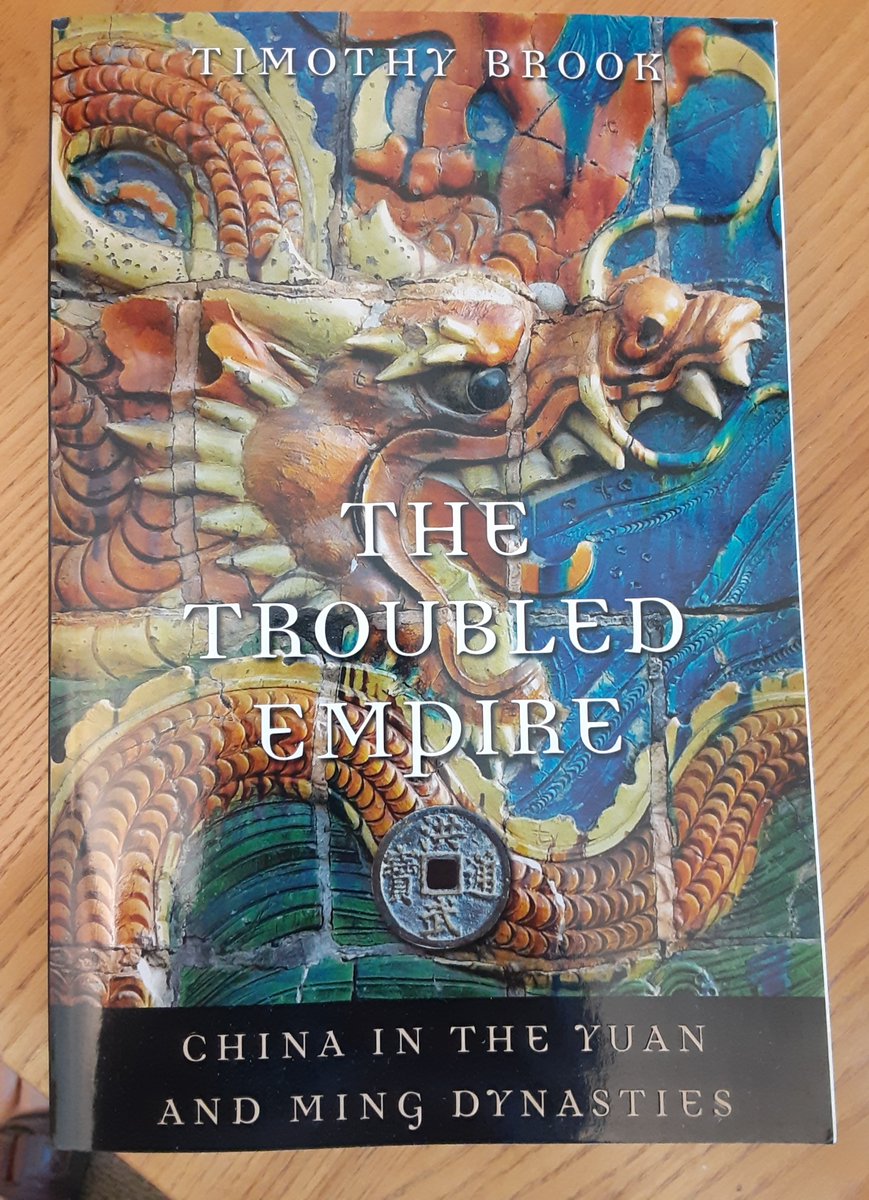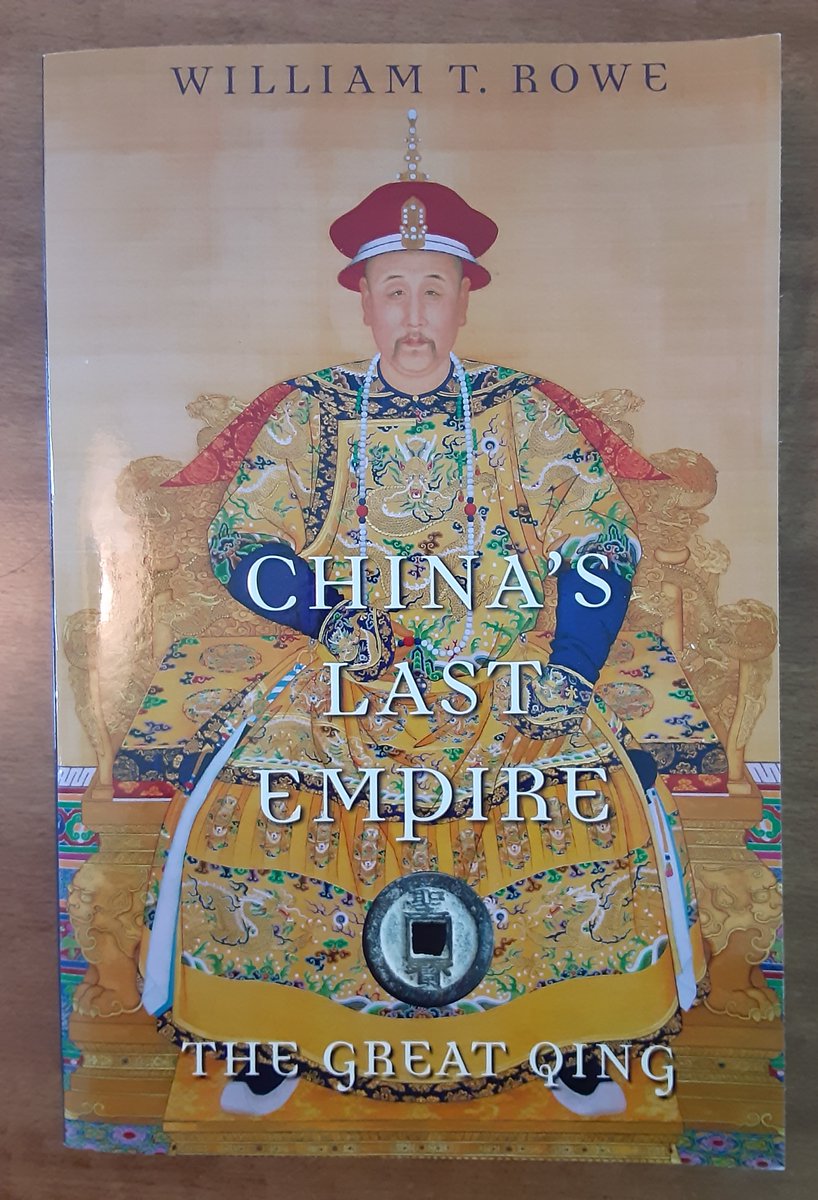Just finished the fifth book of the six volume History of Imperial China series from HUP. What a great read! Here are some thoughts
1/
1/
First, Brook is a marvelous writer with both a sharp eye for the telling anecdote as well as a broader analytic sensibilty that frames details in captivating conceptual contexts.
2/
2/
What is also apparent is that, as one works through the long arc of imperial Chinese history, sources become more varied and plentiful. Brook has a lot to work with - gazetteers, "commonplace books," official histories, paintings, etc. - and he makes excellent use of many.
3/
3/
Analytically, he does some interesting things.
1. He frames move from Yuan to Ming not as a disjunction but as continuum, focusing on political and environmental commonalities. i.e.: Hongwu "tended to reproduce Yuan practices with which he was familiar." (p. 86) hence: autocracy.
1. He frames move from Yuan to Ming not as a disjunction but as continuum, focusing on political and environmental commonalities. i.e.: Hongwu "tended to reproduce Yuan practices with which he was familiar." (p. 86) hence: autocracy.
2. He foregrounds environmental problems - the "little ice age," floods, droughts, etc. - that create distinct moments of crisis for state capacity. These are not wholly determinative of historical outcomes, but important and insightful to keep in mind.
4/
4/
The Ming looms larger here - perhaps a function of sources - but something that come to my mind (and this is not a central element of Brook& #39;s analysis) is the weakness of Confucianism throughout this dynasty.
5-6/ (screwed up my numbering https://abs.twimg.com/emoji/v2/... draggable="false" alt="🙁" title="Leicht stirnrunzelndes Gesicht" aria-label="Emoji: Leicht stirnrunzelndes Gesicht">)
https://abs.twimg.com/emoji/v2/... draggable="false" alt="🙁" title="Leicht stirnrunzelndes Gesicht" aria-label="Emoji: Leicht stirnrunzelndes Gesicht">)
5-6/ (screwed up my numbering
For example, Confucian moralists said that widows should not remarry but "Widow remarriage was far more common than widow chastity." (p. 140).
And: the Confucian view of the afterlife was "not accepted by most people" (p. 167) v. Buddhism and Daoism.
7/
And: the Confucian view of the afterlife was "not accepted by most people" (p. 167) v. Buddhism and Daoism.
7/
Brook retells a story of a lawsuit over a man who buried someone on land that did not belong to him (pp.157-160). The case goes all the way up to the Hongzhi emperor. In the end, Brook argues, property won out over propriety - i.e. Confucianism lost.
8/
8/
The greatest failure of Confucianism, perhaps, is politcial. Confucian principles did not settle the sometimes disastrous succession crises (v. tanistry) nor did it constrain inhumanely abusive despotism.
Zhu Yuanzhang: "hollowed out the Confucian moral tradition..."
9/
Zhu Yuanzhang: "hollowed out the Confucian moral tradition..."
9/
"...and left it with only punishments to maintain the health of the administration." (p. 88).
Confucianism did do something: modern term for economy 经济 comes from 经济济民, "ordering the age and aiding the people," which Ming 儒学 promoted. But that hardly offsets weakenss.
10/
Confucianism did do something: modern term for economy 经济 comes from 经济济民, "ordering the age and aiding the people," which Ming 儒学 promoted. But that hardly offsets weakenss.
10/

 Read on Twitter
Read on Twitter



